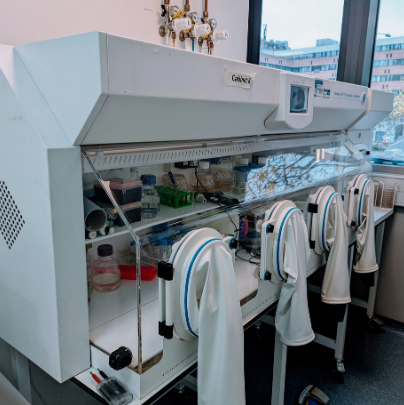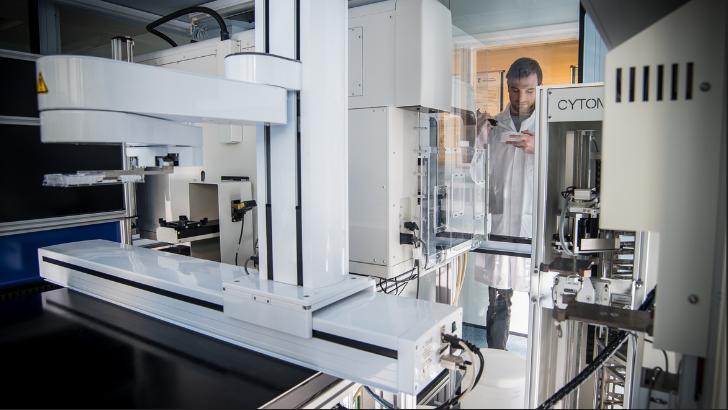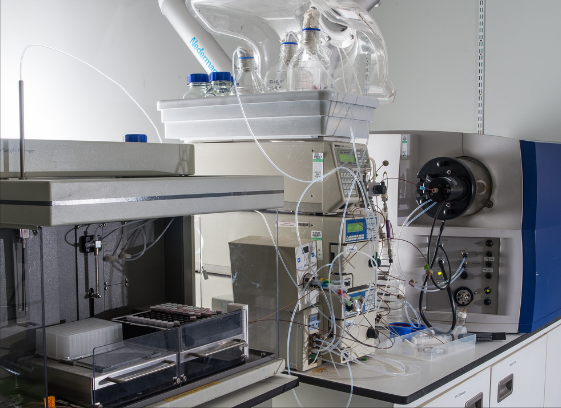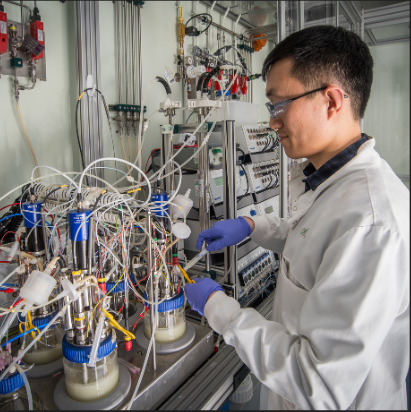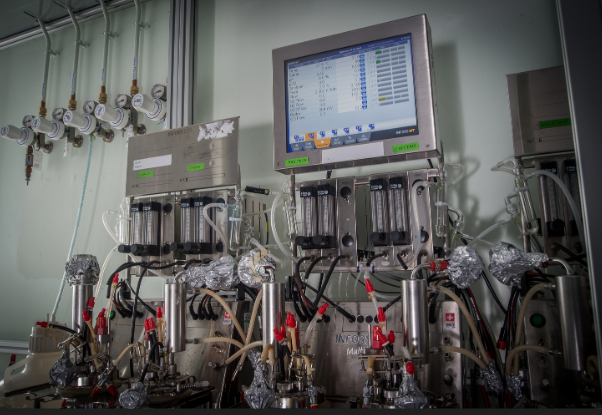Our Services
Forge Genetics offers strains as a service, using our proprietary genetic engineering tool, Forge Editing.
Initially built for ‘hard-to-engineer’ strains, Forge Editing delivers high-precision knockouts and insertions.
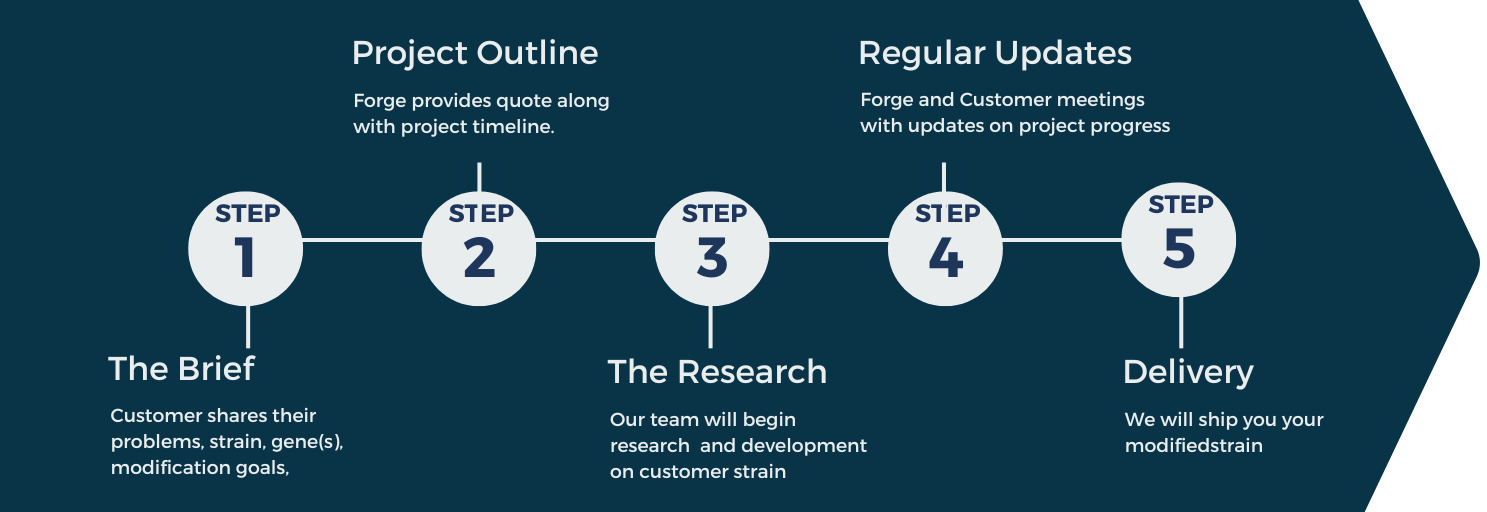
Why Work With Us?
Our team are experts in difficult-to-engineer bacteria, making us the perfect partner for helping you deal with that annoying strain from anaerobes to genetically recalcitrant species.
Our team is trusted across sectors, from pharma to industry companies.
PublicationsIt’s critical for Forge that we protect customer IP.
Our business is to offer strains as a service without giving you an IP headache.
At Forge Genetics we use a genetics technique invented in-house called Forge Editing which means we aren’t reliant on any third-party IP. That means we are able to offer strains that are free from licensing issues unlike strains made with other technologies like CRISPR-based techniques.
We have template documents to safeguard customer IP making it clear that Forge claims no ownership of derived IP whatsoever.
We have fireguards in place between projects. This means that our employees operate on a need-to-know basis meaning only the scientists working on your project will know anything about that project.
Our labs include facilities and equipment uniquely specialised for performing various fermentations which allow us to manipulate anaerobic species and carry out gas fermentation safely.
We operate within a containment level 2 laboratory allowing us to handle pathogenic hazard group 2 species and we have Class 2 clearance from the Health and Safety Executive to perform genetic manipulations on various pathogenic hazard group 2 strains.
We can provide bioinformatics services to generate usable, concise, publication standard outputs that are intuitive and understandable. A particular speciality of ours is transposon sequencing data used to find the essential gene set of a given species.
